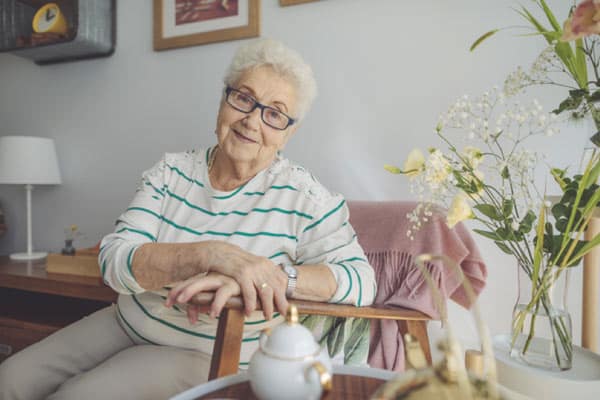The pandemic taught us all how damaging isolation can be, especially for older adults. Yet there are some seniors who choose to live a solitary lifestyle, for a variety of reasons.
Some may struggle with health challenges that make it difficult to get out and about, such as mobility, hearing, vision, or cognitive decline. Others, however, are simply more introverted. Helping a non-social parent avoid the dangers of isolation isn’t always easy. It begins with understanding their point of view.
Start With a Conversation
Set aside some time to talk with your senior parent. Express your concerns about their lack of social engagement. Then listen. See if you can pinpoint the roadblocks to socialization and find a workaround. For instance:
- If the person feels as though they have no friends or family to spend time with, look into opportunities for volunteering, taking a class, or attending activities at the local senior center.
- If transportation is a problem, create a calendar of activities and events the person would like to attend, and arrange for family and friends to take turns chauffeuring. Or let us know! Our referred care providers offer transportation services.
- Talk with the senior’s doctor if a health condition is restricting social engagement to see what recommendations they can provide. It may be something as simple as adjusting the timing of a medication, for instance, if it’s causing fatigue.
What if It’s Depression?
Depression can also cause someone to self-isolate. It’s important to recognize the warning signs of depression and to contact the doctor if depression is suspected. There are treatment options that can make a world of difference.
Signs of depression include:
-
Persistent feelings of:
- Sadness
- Emptiness
- Hopelessness
- Anxiety
- Guilt
- Helplessness
- Worthlessness
- Irritability
- Restlessness
- Fatigue and a lack of energy
- Disinterest in previously-enjoyed activities
- Changes in sleeping and/or eating habits
- Trouble with focusing or concentrating
- Thoughts of death and/or suicide
- Check with the library about book clubs or other small discussion groups.
- Look into programs and classes for older adults at the local community college.
Find a cooking class that accommodates a small number of participants. - Take a daily walk together around the neighborhood. Take advantage of mild weather when more neighbors are likely to be outside, providing the opportunity for conversations.
- Tap into any interests they have and think of ways to build them into social opportunities. For instance, a cat lover can volunteer at the local animal shelter.
What About Introversion?
For someone who is introverted, spending time alone is truly comfortable and enjoyable. However, introversion also includes finding pleasure in smaller group or one-on-one settings. If your parent is introverted, here are some activities you can try to help them become more engaged with others:
Home Care Can Help, Too!
A referred care provider from American, Advocate and Whitsyms In-Home Care makes a great companion for older adults, right in the comfort of home. Our in-home care services provide the opportunity for seniors to form a bond with someone to engage in conversations, reminiscing, arts and crafts, puzzles, games, exercise, fun outings, and more.
To learn more about how our Florida in-home care services can help an older parent enhance socialization and enjoyment in life, contact the office nearest you:
- American In-Home Care – Serving North, Central, and West Coast of Florida
- Advocate In-Home Care – Serving Southeast and Southwest Florida
- Whitsyms In-Home Care – Serving Southeast and Southwest Florida
State of Florida License and Registration Numbers: 30211518, 30211651, 30211295, 30211390, 30210978, 30211293, 30211382, 30211504, 30211733, 30211535, 30211531, 30211710, 30211709, 30211045, 5661


